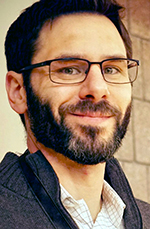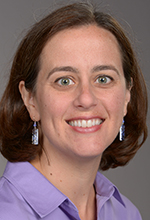University of Wisconsin-Stout’s Honors College and social science department will host a virtual panel discussion on health and COVID-19.
 The discussion will feature experts representing diverse perspectives on health and wellness from 7 to 8 p.m. on Thursday, April 9. It is free and open to all.
The discussion will feature experts representing diverse perspectives on health and wellness from 7 to 8 p.m. on Thursday, April 9. It is free and open to all.
Panelists include Dr. Alexandra Hall, physician and UW-Stout biology instructor; Jeff Sweat, UW-Stout professor of sociology; Andy Felton, UW-Stout assistant professor of rehabilitation and counseling; and Pilar Gerasimo, health journalist and author of The Healthy Deviant.
Students in the Honors College may access the event through Canvas. Others may use the guest link. The event may also be accessed through dial-in at 1-571-392-7650 and use the PIN: 130 067 1944
The panel will discuss the health implications of the pandemic, including:
- Specific characteristics of the disease
- Uneven impacts across groups and places
- Strain on health systems
- Mental health consequences
- Connections between inequality and health
- Social and cultural factors that shape people’s perception of health, illness and contagion
- Strategies for maintaining healthy minds, bodies and communities.
Panelists will also respond to questions and comments.
“Hopefully this event helps to bring people together, even if virtually, to experience a sense of collective solidarity and to learn from the current crisis,” said Thomas Pearson, a professor in the social science department and assistant director of the Honors College.
Hall will help address the medical aspects of COVID-19.
“It’s also important to recognize, however, that ‘health’ is much bigger than biology alone,” Pearson said. “This crisis and the extreme social distancing that is needed to address it has mental health implications, so we’ve invited Andy Felton to address that issue. We also invited Jeff Sweat, who has expertise in the sociology of health and illness, to speak to how some groups, and not just due to age, may be more vulnerable to COVID-19, perhaps because they can’t work from home, or because they live in places with high levels of pollution that put them at higher risk of respiratory problems, or because of the ways racial bias or class inequality might limit access to coronavirus testing and treatment.
“Beyond that, in many ways, our understanding of health, both on an individual and collective level, is shaped and often constrained by social or economic conditions. Pilar Gerasimo is a health journalist and long-time advocate for alternative ways of thinking about health and wellness and will share some strategies for navigating the current crisis,” Pearson said.
Honors College
The Honors College at UW-Stout offers innovative courses that go more in depth, provide opportunities to get outside the classroom and emphasize discussion.
The program includes academic opportunities to complement students’ undergraduate education, regardless of their majors and career goals. Students who join Honors College come from every major. The curriculum is designed to enrich their educational experience and help them become more creative thinkers and leaders.
UW-Stout offers a Bachelor of Science degree in applied social science with concentrations in economics, history and politics, and sociology and anthropology.
For more information on UW-Stout’s planning and response to COVID-19, go to www.uwstout.edu/coronavirus.
###
Photos
Thomas Pearson
Alexandra Hall




